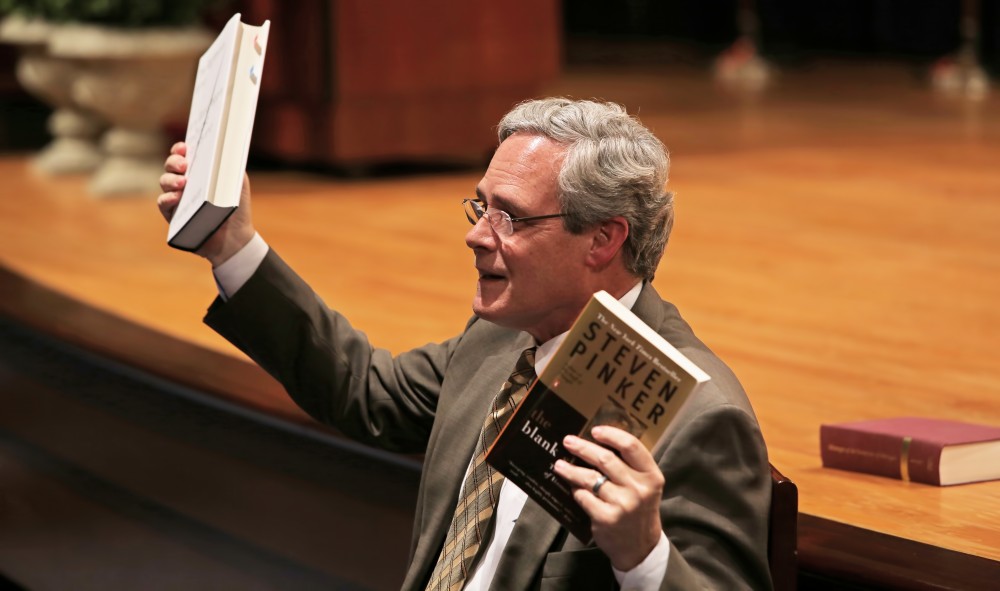Golden lecture series kicks off with Hauenstein Center president

GVL/Kevin Sielaff Gleaves Whitney – Golden Lecture Series
Oct 16, 2014
Grand Valley State University’s College of Education began its 50th year anniversary “Golden” Lecture Series with a lecture by Hauenstein Center for Presidential Studies’ Director Gleaves Whitney.
Whitney’s lecture entitled, “The Great Thresholds of Education,” was a seminar-style lecture which explored the history of education.
“We wanted to celebrate our 50 years, and a better way to do that would be to bring the community, because we have always been so closely connected to partnerships and programs and people. That is what education is about,” said Linda McCrea, director of teacher education at GVSU and chair of the 50th anniversary committee for the college.
Whitney has prior experience working for the state government and he was part of a task force that helped bring major education and school finance reforms to Michigan.
His training as a historian has allowed him to consider the big picture.
“I am always on the lookout for the big moments or the wild moments of history that have true significance to the way our civilization has evolved, our culture has evolved,” he said.
Whitney said the thresholds are what have brought us to our current systems of education. He spoke about the important thresholds within history, starting with evolutionary psychology and how homo sapiens developed the ability to survive.
He said homo sapiens developed three things that would help them: the ability to develop a complex language, emotional intelligence and the formation of cooperative communities.
Whitney went on to talk about how the further development of civilization itself led to the formation of writing systems and the phonetic alphabet.
“Historians have said that the greatest boost to democracy and to equality actually started 5,000 years ago with the Phoenician alphabet and Hebraic alphabet,” Whitney said. “The increasing numbers of people that can share in communication is going to lay the groundwork for common ground.”
Whitney linked education to finding common ground and forming a democracy. To illustrate his point, he read a passage about the role of education in America.
“The primacy of education in America is striking,” he said. “Americans believe that education is central to the realization of a truly democratic, egalitarian society. It is through education that the skills necessary to exercise citizenship and to benefit from the opportunities of the economy will be imparted no matter how recently arrived or previously disadvantaged.”
Whitney added that this idealism about American education is different than how much of the world views education.
Whitney said that in recent years, we have seen examples of how thresholds can lead to common ground, citing examples such as Bill Gates and Steve Jobs and the changes they made in technology.
“As Steve Jobs said, ‘I want a kid in his dorm room at Stanford to be able to cure cancer,’” Whitney said.
Whitney said this goal was lofty but has changed the world.
“I thought of the threshold,” Whitney said. “They set the bar so high and that’s a threshold we are never going to let go of. All of this leads to the greater possibilities toward common ground.”






















